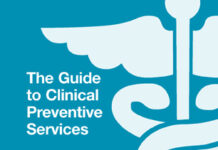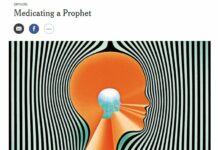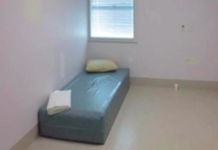Criticism of Coercion and Forced Treatment in Psychiatry
A recent editorial, published in BMJ, argues there is an increase in coercive measures in psychiatry that are damaging to individuals diagnosed with mental illness.
The Murphy Bill, HR 2646 — a Heinous Piece of Legislation — is Coming...
The National Coalition for Mental Health Recovery is calling upon all people of like minds, who care about individuals who need mental health services, to ACT. It is urgent. Please call your representative in the House of Representatives to vigorously oppose HR 2646 on Tuesday, July 5, 2016. And, call your Senator to insist that the Senate reject any amendments or changes to mental health legislation from the House by Friday, July 8, 2016. For more information about this Call to Action, please click here.
Ioannidis Questions Strength of Psychology and Neuroscience Literature
Last week, well-known Stanford scientist John Ioannidis and his colleague Denes Szucs released a new analysis online. They examined research published in eighteen prominent...
Spotlight on Institutional Psychiatry
Spotlight on Institutional Psychiatry is a response by psychiatric survivors and allies to Operating in Darkness, a scathing 2017 report on British Columbia’s Mental Health Act Detention System. We hope that professionals will take note of the devastating effects of forced psychiatric treatment and be moved to speak out, and, above all, that survivors will feel encouraged and inspired by our efforts.
Electroshocking Veterans and Their Fetuses
I have long been concerned with the way society responds to people who come back from war. Veterans are routinely funneled into psychiatry’s grasp. Over the decades, some people who fought in wars have shared with me their experiences of being psychiatrized upon return from war. Sometimes these experiences included veterans being stripped of their second amendment rights, and a host of other constitutional, civil, and human rights violations as they began to be forced into complying with psychiatric regimens, and on several occasions this included veterans being subjected to electroshock.
ECT for Agitation and Aggression in Dementia
The International Journal of Geriatric Psychiatry published an article titled Safety and utility of acute electroconvulsive therapy for agitation and aggression in dementia, which concludes "Electroconvulsive therapy may be a safe treatment option to reduce symptoms of agitation and aggression in patients with dementia whose behaviors are refractory to medication management." But the participants were not a random selection of people taking the drugs in question. Rather, they were individuals selected because of aggressive behavior, most of whom had been taking some or all of these drugs on admission. So it is a distinct possibility that the aggression was a drug effect for many, or even most, of the study participants.
Madness in Civilisation: A Cultural History of Insanity
Until recently the history of psychiatry was a neglected backwater whose murky depths were explored largely by psychiatrist. The impression conveyed by books such as Tuke’s Chapters in the History of the Insane in the British Isles, Macalpine and Hunter's Three Hundred Years of Psychiatry: 1535 - 1860, Berrios and Freemen's 150 Years of British Psychiatry 1841 - 1991, or Fuller Torrey and Miller's The Invisible Plague, is one that sees psychiatry and modern systems of mental health care as the inevitable outcome of progress through scientific thought, a (white European male-led) narrative from darkness and ignorance to enlightenment and knowledge.
Measuring How Mental Health Professionals See Service Users’ Rights
A new scale has been developed and validated to examine beliefs held by mental health professionals towards service users’ rights.
Letter to the Mother of a “Schizophrenic”: We Must Do Better Than Forced Treatment...
Again and again I am told the ‘severely mentally ill’ are impaired and incapable, not quite human. I am told the “high utilizers” and “frequent flyers” burden services because they are different than the rest of us. And when I finally do meet the people carrying that terrible, stigmatizing label of schizophrenia, what do I find? I find – a human being. A human who responds to the same listening and curiosity that I, or anyone, responds to. I find a human who is above all terrified, absolutely terrified, by some horrible trauma we may not see or understand.
New UN Report: Steps Forward, But No End to Impunity
Dainius Pūras, UN Special Rapporteur on Health, has issued a groundbreaking new report critiquing biopsychiatry and its reliance on coercion, yet he pulls his punches, most unforgivably by treating the obligation to end coercive practices as a matter for gradual rather than immediate implementation.
Experts Concerned That Depression Screening Will Lead to Overdiagnosis
Behind the U.S. task force recommendation to screen all children and adults for depression.
Regarding Representative Tim Murphy’s Helping Families In Mental Health Crisis Act
Representative Murphy has released the second version of the Helping Families in Mental Health Crisis Act (H.R. 2646). Few can argue that the mental health system and the current approach towards helping individuals and families in crisis are abysmal. H.R. 2646 is an effort to create increased service provisions and to enhance interventions that many professionals, family members and service users alike believe to be effective. When people are desperate and suffering they do not wish to be told "Sorry, there's nothing we can do." And so, it is understandable and even laudable that so many support the proposals laid out in H.R. 2646. But the bill is based on distorted and faulty logic that misrepresents the research and evidence base. This is highly disconcerting. And so a collective of mental health professionals, mental health advocates, and persons with lived experience came together to produce the following documents in response to H.R. 2646.
Equal Legal Capacity or ‘Supported Decision-Making’?
At a recent conference on legal capacity, I was struck by the failure of another invited expert to adhere to the paradigm of supported decision-making as articulated by the CRPD Committee. We still need to work to ensure that this paradigm is well understood and appreciated, despite the progress made in national reforms.
How Victorian Women Were Oppressed Through Psychiatry
From The Atlantic: In the mid- to late 1800s, psychiatric institutions were used to oppress women and reinforce patriarchal norms. The new Netflix show Alias Grace, based...
State Permanently Closes Psychiatric Hospital
From The Boston Globe: The state of Massachusetts has permanently closed the Westwood Lodge psychiatric hospital due to issues of patient safety, quality of care,...
Two Thirds of Patients See Physicians Who Receive Payments From Pharma
Study finds more patients are visiting physicians who have ties to industry than previously thought.
The Curious Case of over 50 Consecutive ECTs in Melbourne
Over the past few weeks I have been witness to, and increasingly involved in trying to stop one of the most extreme examples of psychiatric brutality I have encountered in my 40 years in this field. And I have encountered quite a few. I suggest you sit down before watching and reading. This is not your usual, run-of-the-mill psychiatric abuse story.
VA Hospitals Perform Worst on Inpatient Psychiatric Care
The results of the cross-sectional study show that U.S. Department of Veterans Affairs (VA) owned hospitals perform worst on most measures.
The Angry Congressman: Tim Murphy’s Lack of Insight
The most spectacular part of Rep. Murphy’s hypocrisy has nothing to do with abortion or reproductive rights. Allegations of his dangerous behavior and his lack of insight into his own actions would be enough to commit him, involuntarily, to psychiatric treatment under the Helping Families in Mental Health Crisis Act that he championed.
The Shamanic View of Mental Illness
From UPLIFT: In the shamanic view, emotional distress and psychosis signal a spiritual awakening or emergence, not a pathology. Western cultures can learn a great...
“Medicating a Prophet”
In the New York Times Sunday Review, Irene Hurford, a psychiatrist, reflects on the ethics of forced treatment for psychosis. “As doctors,” she writes,...
Psychiatry’s Little Known Role in Creating the Holocaust
From NewBostonPost: In light of the recent commemoration of International Holocaust Remembrance Day, it is important to acknowledge the role that eugenics, a field developed by psychiatrists...
Mental Health Seclusion to be Scrapped After UN Condemnation
From Stuff: In 2015, the United Nations Committee Against Torture expressed concern at New Zealand's use of seclusion against mental health patients. According to a...
Ethical Failings in Experimental Drug Safety Trials
Leading human subjects ethics researcher questions exploitation of uninsured minorities in experimental drug trials.
Does ‘Mental Illness’ Exist?
In this interview for ABC Australia, leading psychology professor Peter Kinderman discusses why we need alternative ways of understanding and supporting people in distress that take...



























